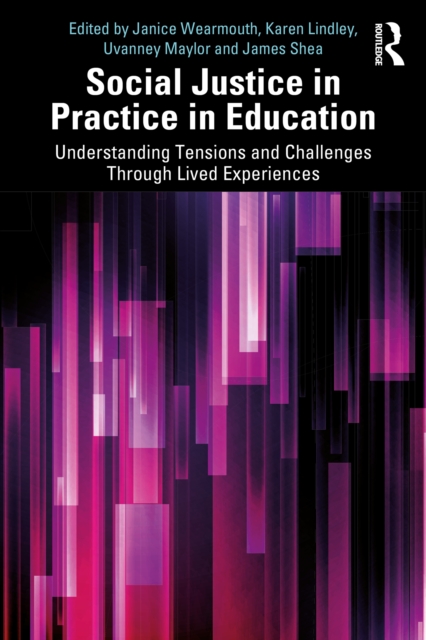
Social Justice in Practice in Education : Understanding Tensions and Challenges Through Lived Experiences PDF
Edited by Janice (University of Bedfordshire, UK) Wearmouth, Karen Lindley, Uvanney Maylor, James Shea
Description
Exploring Social Justice in Practice in Education focuses on the tensions and challenges to issues of fairness and social and cognitive justice in the sphere of education. The terms ‘fairness’ and ‘social and cognitive justice’ are often used to justify particular policies and practices in the sphere of education.
In providing a clear definition of what they should mean in practice, this book includes a discussion of, and, in some cases, potential resolutions to, tensions and challenges in relation to notions of fairness, and social and cognitive justice that are implicit within individuals’ lived experiences across all phases of education.
Through their personal narratives, the authors illustrate how such tensions and challenges have played out in their own lives.
They go on to explore differences in interpretations and consequent challenges in putting concepts of social justice into practice.
Chapters consider important implications across different sectors and phases of education, including special educational needs, leadership and higher education. This insightful volume will enable educators, at all levels, to hear from students, family members, significant adults/carers and professionals, their experiences of fairness and social justice in education, and about what could be done in the future to redress injustices.
It will appeal to readers at all levels in education including those studying for or teaching Education-related degrees at bachelors’, masters’ and doctoral levels.
Information
-
Download - Immediately Available
- Format:PDF
- Pages:238 pages, 3 Tables, black and white; 8 Line drawings, black and white; 7 Halftones, black and white
- Publisher:Taylor & Francis Ltd
- Publication Date:12/04/2024
- Category:
- ISBN:9781040000441
Information
-
Download - Immediately Available
- Format:PDF
- Pages:238 pages, 3 Tables, black and white; 8 Line drawings, black and white; 7 Halftones, black and white
- Publisher:Taylor & Francis Ltd
- Publication Date:12/04/2024
- Category:
- ISBN:9781040000441






